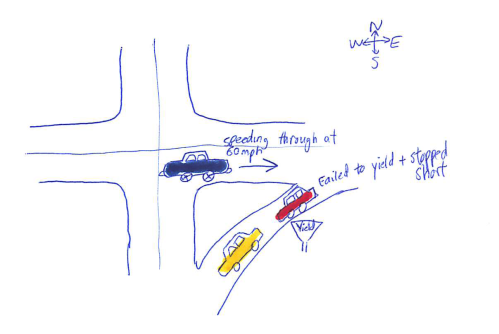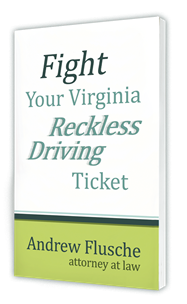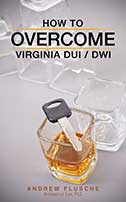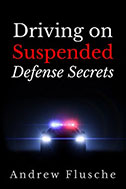Should I Plead Guilty to Following Too Closely or Contest it?
Guest post by Peter John Louie, a Traffic Defense Attorney who practices in Virginia Beach, Norfolk, Chesapeake, and the greater Tidewater area.
If you have been charged with following too closely, my suggestion to you is to make the Commonwealth prove its case. My answer would be the same whether you were facing a reckless driving criminal misdemeanor charge after an accident or a following too closely traffic infraction charge under Virginia Code § 46.2-816. Many defendants think that a following too closely charge is a small charge and not worth fighting in court. What they fail to realize is that a following too closely conviction stays on one’s record for 3 years and carries 4 points.
By prepaying a fine online, you are admitting guilt and taking a 4 point hit on your Virginia driving record. By admitting guilt, the prosecution is not even required to prove its case. This can have adverse effects on your insurance rates if your particular insurance provider chooses to penalize you. It will also make it harder to fight future charges if you are ever charged with speeding or any other traffic violation as judges invariably take into account a person’s past driving record when deciding the outcome of a pending charge.
Furthermore, pleading guilty to following too closely can adversely affect a civil suit against you if there is personal injury involved and civil litigation pending. In most cases, a personal injury suit in Virginia has a two-year statute of limitations, so you may not even know about a civil suit yet. Since the evidentiary standard in traffic court is the higher standard of “beyond a reasonable doubt,” opposing counsel in a civil suit considering the lower standard of “preponderance of the evidence” would argue that evidence of guilt in traffic court is evidence of guilt and responsibility for causing another person’s injuries in the civil suit.
In Virginia Beach, judges are generally tougher than the jurisdictions in the surrounding area. However, law enforcement officers often fail to summon witnesses to court and it is possible to have a following too closely charge dismissed with the help of an attorney. Case law in Virginia dictates that the fact that an accident happened is not enough to prove how the accident happened or the negligence of the driver. Even if there are witnesses, an attorney can cross-examine the officer, any witnesses, and possibly the defendant (if it is wise to put the defendant on the stand) to help the court see that there are other causes of accidents other than tailgating. A driver’s brakes may have failed or another driver may have stopped short suddenly.
Below is an example where many drivers are at fault, but where a police officer showing up to the scene of an accident would probably only charge one party with “following too closely.” In the diagram below, picture the blue car as a car that is speeding through the intersection, heading eastbound, at over 15 mph above the posted speed limit. The driver of the red car approaching the intersection to make a right turn fails to yield despite the yield sign, and at the last moment, sees the blue car speeding across the intersection and stops abruptly. The driver of the yellow car following the red car unfortunately hits the red car in the bumper, after the red car stopped suddenly. This scenario happens more often that you would believe. The blue car would not even be at the scene when a police officer arrives. The driver of the yellow car would most likely get a summons for following to closely, even though the actions of other drivers contributed to the accident. Sometimes officers will even charge a driver at the scene of an accident with reckless driving, a criminal misdemeanor charge, just because an accident occurred!
My recommendation to you is to fight your following too closely charge. Make the Commonwealth prove its case beyond a reasonable doubt. Contact a seasoned traffic defense attorney such as my friend Andrew Flusche or a seasoned traffic defense attorney in your area to help you fight a following too closely charge. My friend Andrew Flusche practices in Fredericksburg, Stafford, Spotsylvania and the surrounding areas. I practice in Virginia Beach, Norfolk, Chesapeake, and the greater Hampton Roads area. You are innocent until proven guilty, and even if you are at fault, judges can have mercy if we explain the total circumstances. Let us fight for you today!





